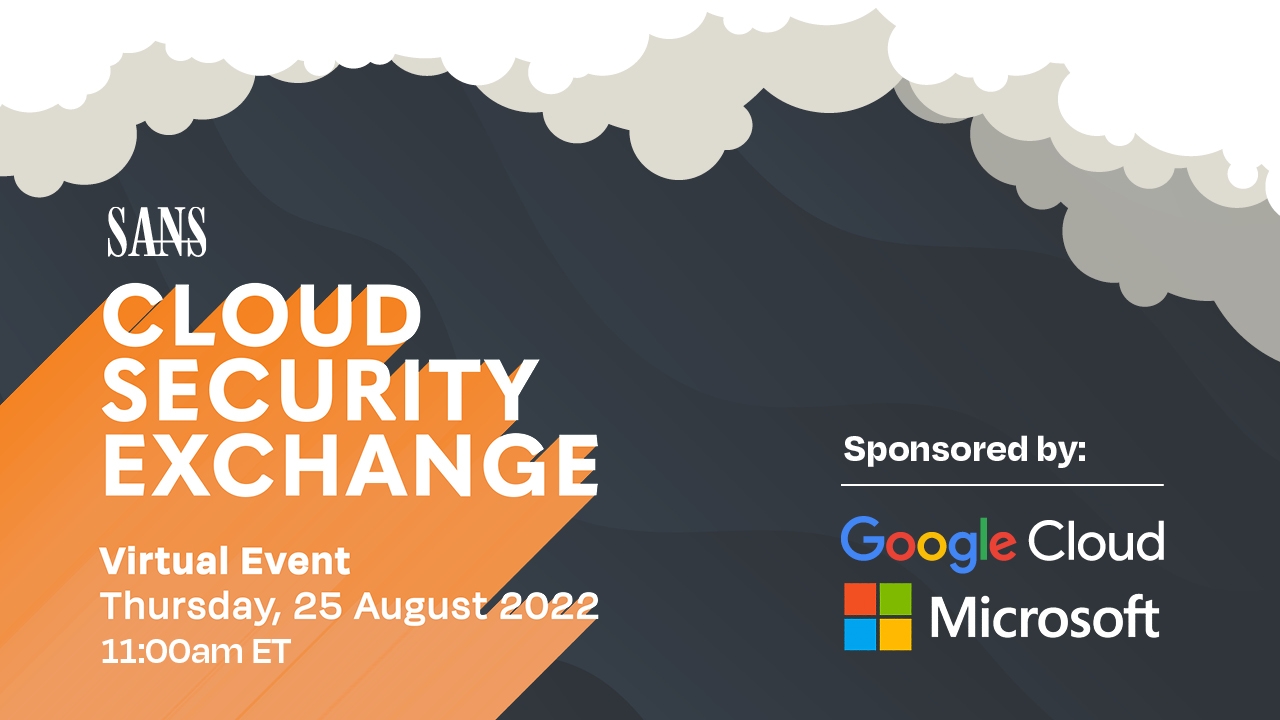SEC595: Applied Data Science and AI/Machine Learning for Cybersecurity Professionals


Experience SANS training through course previews.
Learn MoreLet us help.
Contact usBecome a member for instant access to our free resources.
Sign UpWe're here to help.
Contact UsSANS Cloud Security Exchange 2022 | Thursday, August 25th at 11:00am EDT

In a world learning to live with COVID-19, how we live and work has fundamentally changed. Organizations that adopted remote and hybrid business models as short-term Band-Aids in response to the pandemic are now embracing these permanently and adopting cloud technologies to better share information across an increasingly distributed workforce to improve operational efficiency.
The cloud is no longer the vast unknown it was once made out to be. Modern cloud services are highly secure, reliable, and cost-effective. They help companies of all sizes compete in the global market alongside industry giants, and they’ve already earned the trust of many tech-savvy teams. With profit margins on the line, even those hesitant about committing to cloud-computing solutions should consider the benefits:
Join the SANS Institute at the 2022 Cloud Security Exchange as we bring together technical security leaders from Google Cloud Platform (GCP) and Microsoft Azure in one forum to share their perspectives on building cloud security programs and best practices on crucial security pillars. Independent technical experts from SANS Institute will be paired with these cloud security provider leaders to share solutions to organizations' problems in the increasingly multi-cloud environment.
Please register today to join us Live Online Thursday, Aug 25th at 11:00 am EDT: https://www.sans.org/webcasts/sans-2022-cloud-security-exchange/ This event will be simultaneously live streamed in Portuguese, and Spanish. Also, Japanese will be available in OnDemand format. Can't join us live? We've got you covered, register now and you will be notified when the OnDemand recording will be available for you to revisit as your schedule permits, including all the languages!

About the Author
Frank Kim is hosting the 2022 Cloud Security Exchange. He is the Founder of ThinkSec, a security consulting and CISO advisory firm, as well as a SANS Fellow and lead for both the SANS Cybersecurity Leadership and SANS Cloud Security curricula, overseeing two dozen SANS courses in the two fastest growing curricula. Previously, as CISO at the SANS Institute, Frank led the information risk function for the most trusted source of computer security training and certification in the world. Frank is also the author and instructor of MGT512: Security Leadership Essentials for Managers, MGT514: Security Strategic Planning, Policy, and Leadership, and co-author of SEC540: Cloud Security and DevSecOps Automation. Learn more about Frank here.


SANS Fellow Frank Kim helps to develop the next generation of CISOs and cyber leaders while teaching LDR512 and LDR514.
Read more about Frank Kim